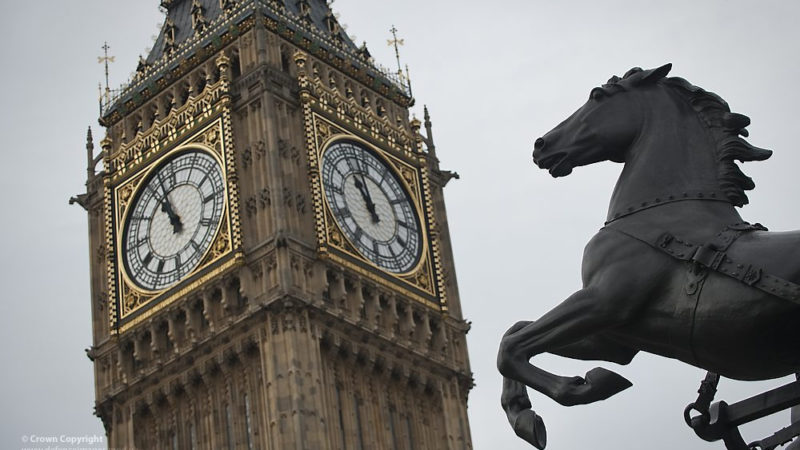Whitehall doesn't know best.

The UK entered the Covid-19 pandemic with deep and growing divides between and within our regions. Long-standing imbalances in investment and a decade of austerity have left the north’s economy vulnerable to shocks – which came thick and fast in 2020.
This year also brought repeated promises of ‘levelling up’, reducing social and regional inequalities. In the wake of Covid-19, this task is even more urgent. The North needs ambitious investment matched by ambitious devolution if it is to recover and thrive in the aftermath of the pandemic.
In October 657,900 people in the north claimed unemployment-related benefits – suggesting worklessness on a scale not seen since the early 1990s. ‘Jobs density’, the number of jobs per working-age person, stands at 0.7 per person compared with an English average of 0.74.
And 1.5 million workers in the north – including 40 per cent of working women – earn less than the real living wage. These regional economic inequalities lead to social ones. The North has higher rates of child poverty than the rest of England, and on average people live a smaller proportion of their years in good health.
Around the world many countries are governed through systems that pass powers to their regions, in devolved (as in Spain) or federal (as in Germany) models. By contrast, the UK is unusually centralised, with one of the most powerful executives.
The assumption that the centre knows best is embedded deep into the psyche of both Westminster and Whitehall. Shrinking local government resources have become detached from growing local government responsibilities, and Metro Mayors have to jump through too many legal hoops to realise their supposed new powers.
The new ‘Levelling Up Fund’ is a case in point. The (too small) £4 billion pot will be centrally-controlled and dished out through competitions between regions, rather than collaboration that make the whole more than the sum of its parts. Similarly, devolved skills policy can achieve a better match between skills supply and the needs and opportunities in local economies.
When too much power is held in the centre means, we can lose sight of what matters. People feel too distant from opportunities to make tangible improvements to their communities, and the realities of places and experiences are too easily overlooked.
For example, health improvement has long been a high priority for local government, which is well placed to act on the social determinants (housing, neighbourhood and community, transport and environmental quality) that shape our health through the countless interactions of daily life. Many councils have integrated ‘Marmot principles’ into their health and wellbeing strategies.
Yet despite demonstrated successes at the local level in reducing health inequalities and rates of illness, and the proven value for money of public health grants, councils have seen this funding cut during the ‘austerity’ period.
Worse still, areas with some of the highest levels of preventable diseases have also seen some of the biggest cuts to their grant – as shown in our report on Levelling up health for prosperity. As the title suggests, investment in health improvements is important both as a way to improve lives, and as a way to boost local economies. Right now, in too many parts of the north economic inequalities run parallel to health ones.
To date, devolution in England has been a piecemeal deal-based exercise resulting in a patchwork of different powers in different places, falling short of a radical reimagining of how we are governed.
It has prioritised economic development and over-focussed on productivity growth – a strategy that has failed to translate into better lives for the communities whose labour must deliver it.
Even despite this, Metro Mayors have to date outperformed their relatively limited powers. They have set out ambitious visions that transcend their relatively limited powers, spoken up for their regions with passion and understanding, and – where necessary – challenged Westminster.
But real ‘levelling up’ England needs a realisation that centralised governance has failed our regions. To solve this, local and regional leaders, and the citizens who elect them, need more power to level up for themselves.
In our 2020 State of the North report, we propose four key tests for ‘levelling up’, focussing on a jobs-led recovery post-Covid-19, a fairer economy, and an empowered North with a healthier democracy that gives people a real stake in their future and their governance.
And that, ultimately, demands a new constitution which permanently reforms central-local relationships, devolving key powers and resources – including fiscal powers and key economic policy – for all places and regions.
Anna Round is a senior research fellow and Marcus Johns is a research fellow at IPPR North
To reach hundreds of thousands of new readers we need to grow our donor base substantially.
That's why in 2024, we are seeking to generate 150 additional regular donors to support Left Foot Forward's work.
We still need another 117 people to donate to hit the target. You can help. Donate today.



